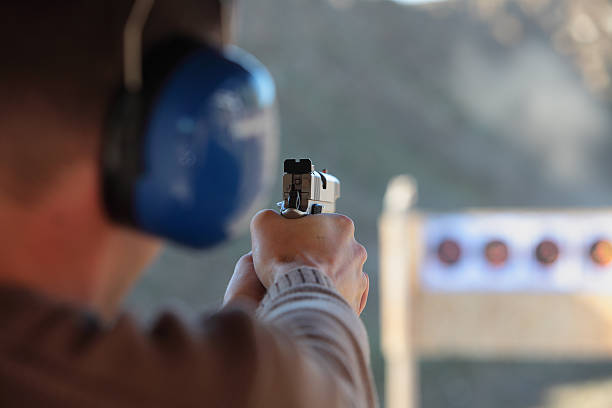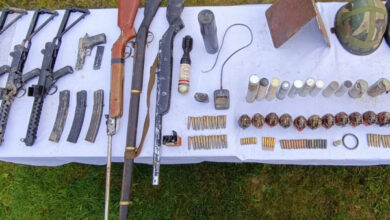Brazil’s Taurus Armas And Jindal Defence Collaborate To Make Smaller Arms

- The success of the JV agreement also speaks of progress in India’s push to manufacture defence products domestically.
- According to Agrawal, the government should work to increase foreign defence majors' comfort levels with transferring technology.
By forming a joint venture with Brazilian defence giant Taurus Armas S.A. in 2020, Jindal Defence is poised to start domestically producing small arms, which will advance India’s defence indigenization goals. The two businesses anticipate beginning production in January at a facility in Hisar, Haryana.
“We have already set up our plant in Hisar, and we are now awaiting the various stakeholders’ approval for the plant to start producing “The plant was established with an initial investment of $5 million for the land and construction costs, according to CP Agrawal, head of Jindal Defence and Aerospace’s defence and composite business.
According to Agrawal, the plant will try to produce a 9mm pistol for use by the Central Armed Police Force (CAPF) and the Indian Army. The two companies are also planning to produce a 5.56 x 45mm carbine, which is needed by the Indian Army in large quantities. Jindal Defence and Taurus Armas are participating in the most recent Request for Information process started by the government for this weapon.
According to Agrawal, they “also have the 7.62 x 39mm, which will replace the AK platform and be provided to the CAPF and Indian Armed Forces.” “. These weapons will be displayed by the companies during Gandhinagar’s upcoming DefExpo 2022.
In our plant in Hisar, we aim to produce whatever small arms our soldiers require “According to Agrawal, the equity participation ratio in the joint venture between Jindal Defence and Taurus Armas S.A. is 51:49.
Although it entered the defence industry in the 1940s, the Jindal group is a relative newcomer to the sector. Prior to this foray into small arms manufacturing, the firm’s efforts were focused on special alloys and blast-resistant armour for the aerospace and defence industries. Taurus Armas is a well-known name in the sector and is particularly renowned for its manufacture of pistols and firearms for law enforcement agencies.
The success of the JV agreement also speaks of progress in India’s push to manufacture defence products domestically. According to Agrawal, Taurus Armas initially came in with concerns about technology transfers and the safety of their technology. “However, the perspective has completely changed now. We are going to have a completely Made in India weapon”.
In its 9mm pistols and more than 50% of its carbines, Jindal hopes to achieve 92% indigenous content (IC) by January 2023. It aims to produce pistols with 100% IC by June 2023 and carbines with 70% indigenous material.
It hasn’t always been easy sailing. Major international defence companies are still wary of transferring technology to and opening businesses in India. The enormity of the needs that must be addressed in the Indian market, according to Agarwal, is one difficulty. Numerous worldwide businesses are unaccustomed to handling such volumes.
According to Agrawal, the government should work to increase foreign defence majors’ comfort levels with transferring technology. Another suggestion is for the government to assist private firms, rather than just defence PSUs, in acquiring key technologies.







Facebook Comments